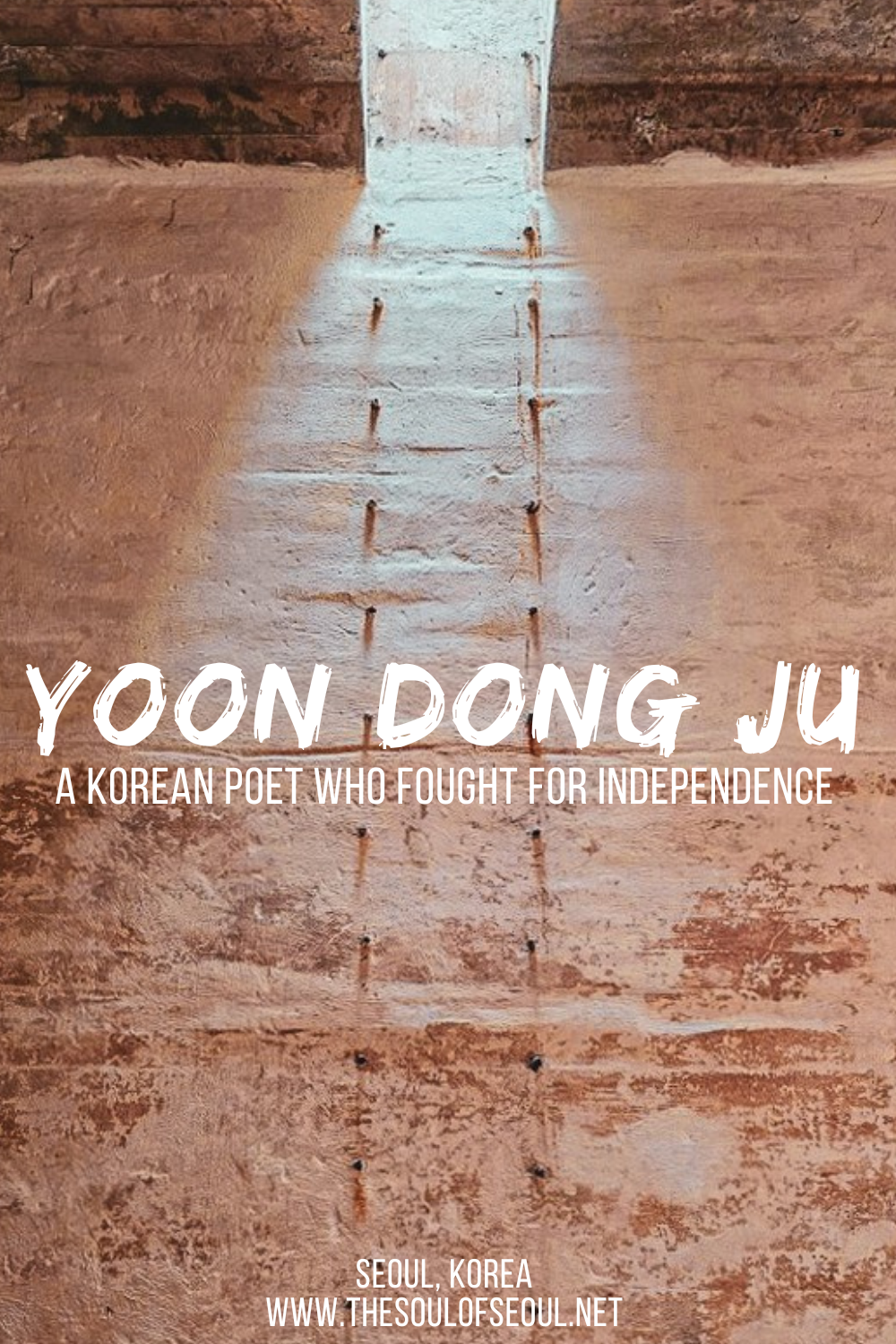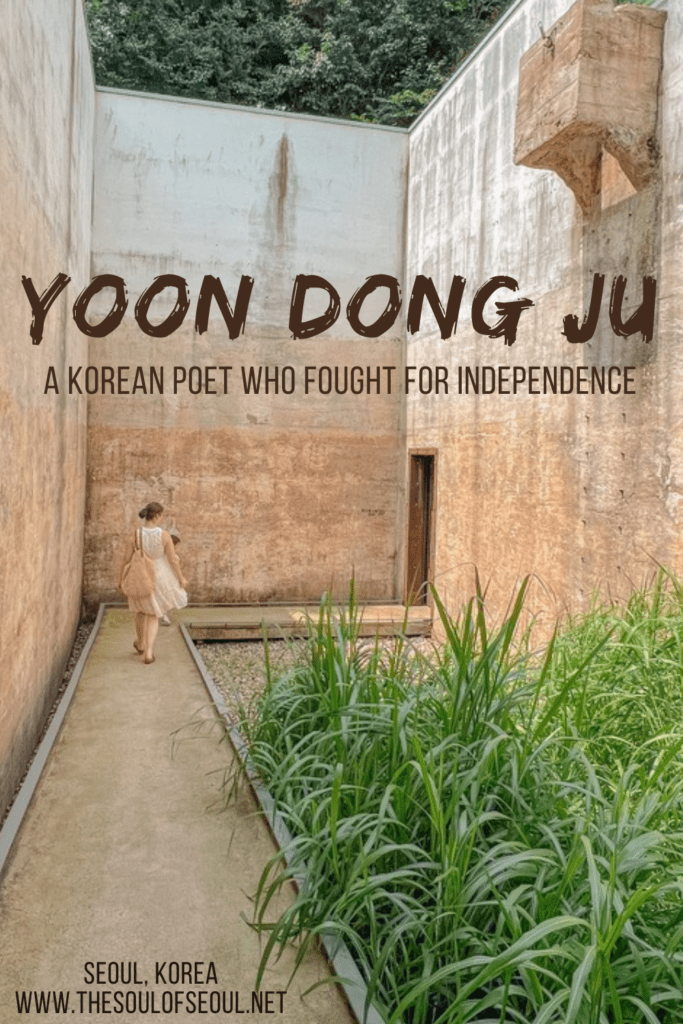Where To Learn About The Korean Poet Yoon Dong Ju in Seoul
Last Updated on March 24, 2025
The first time I visited the Yoon Dong Ju Literature Museum (윤동주문학관) in Seoul, Korea was after I hiked along Bugaksan Mountain. I’d come down through Changuimun Gate (창의문) after hiking along the Seoul Fortress Wall and this intriguing museum sat near the bus stop. I stopped in briefly just to see what it was all about and made note to go back.
A Korean poet who wrote his poems while under Japanese colonial rule to fight Korean censorship preserve the Korean language, and push for Korean independence, there was only one copy of Yoon Dong Ju’s most famous work “The Sky, the Wind, the Stars, and the Poem” (하늘과바람과별과시) that escaped the crackdown on Korean literature. Largely unknown while he was alive, today he is a cultural icon and is loved in Korea as well as Japan and China and there are memorials erected to him in each country.
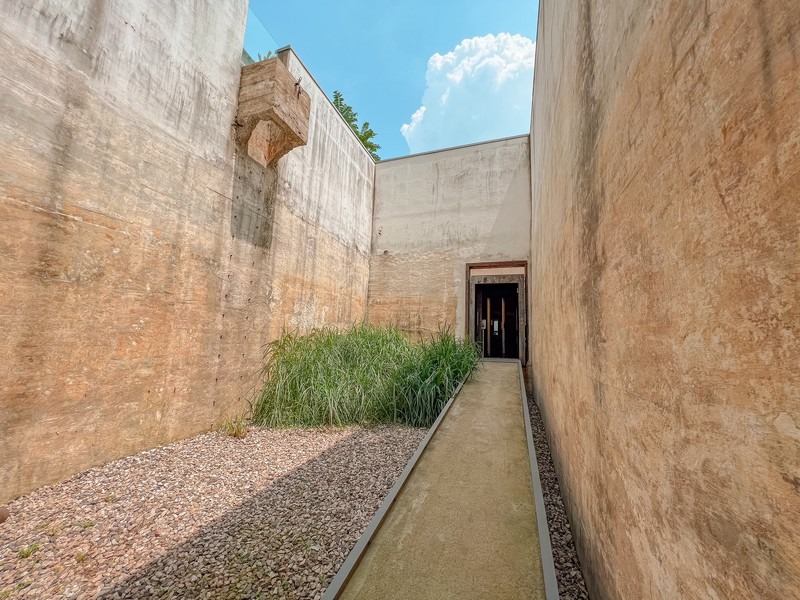
(This post contains affiliate links, which means I receive a certain percentage of a sale if you purchase after clicking at no cost to you. Thank you for your support.)
Basic Info
Address: 112 Changuimun-ro, Jongno-gu, Seoul (서울시 종로구 창의문로 112)
By Public Transportation: Take a bus from outside Gyeongbokgung Station exit 3 that is heading north and will stop at “Jahamun Gogae, Yoon Dong Ju Literature Museum” Bus Stop. Buses 1020, 7022, and 7212 all stop there.
Hours: Tuesday – Sunday: 10:00am ~ 6:00pm
- Closed Mondays, January 1st, Lunar New Year’s Day, and Chuseok
Admission: Free
Screening of “Yoon Dong Ju, the Poet of Stars”: Every 15 minutes in the “Closed Well” from 10:00am to 5:30pm.
Who was Yoon Dong Ju
Yoon Dong Ju was born in 1917 and tragically passed away at the tender age of 27 in 1945. He was a poet who left an indelible mark on Korean literature. His work is characterized by its lyrical beauty and its passionate dedication to the Korean independence movement against Japan. Yoon’s life was a tumultuous journey, marked by his unwavering pursuit of truth and justice.
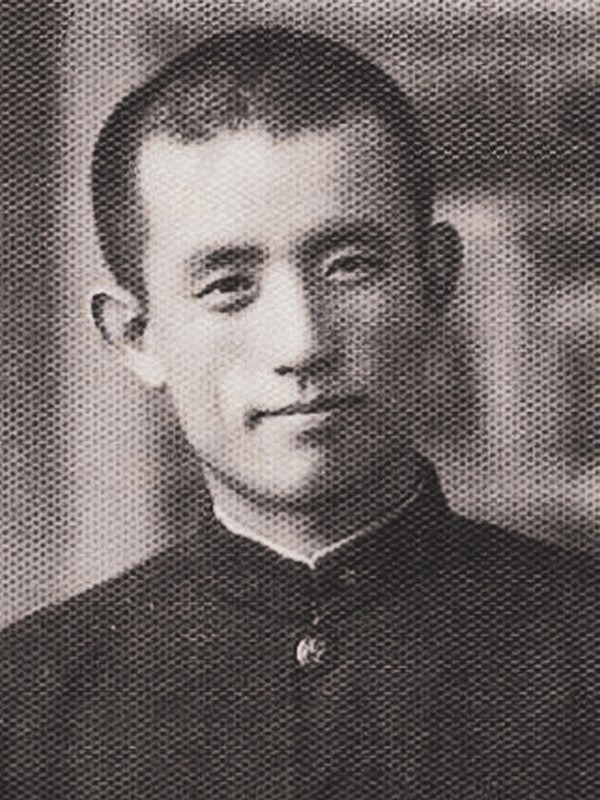
The poet’s biography is like a narrative from a heart-wrenching novel. Born in Longjing, China, Yoon began his literary journey at an early age. He attended Soongsil Middle School in Pyongyang before moving to Seoul to study at Yonhi College (now Yonsei University).
It was during this time that he wrote a remarkable collection of over 100 poems, the most famous of which can be found in “The Sky, the Wind, the Stars, and the Poem” (하늘과바람과별과시). His deep-rooted passion for poetry and a burning desire for change in the face of oppressive colonial rule allowed him to create beautiful works that are celebrated today.
You can buy “The Sky, the Wind, the Stars, and the Poem” on Amazon in the original Korean or buy it in English if you want a copy of your own.
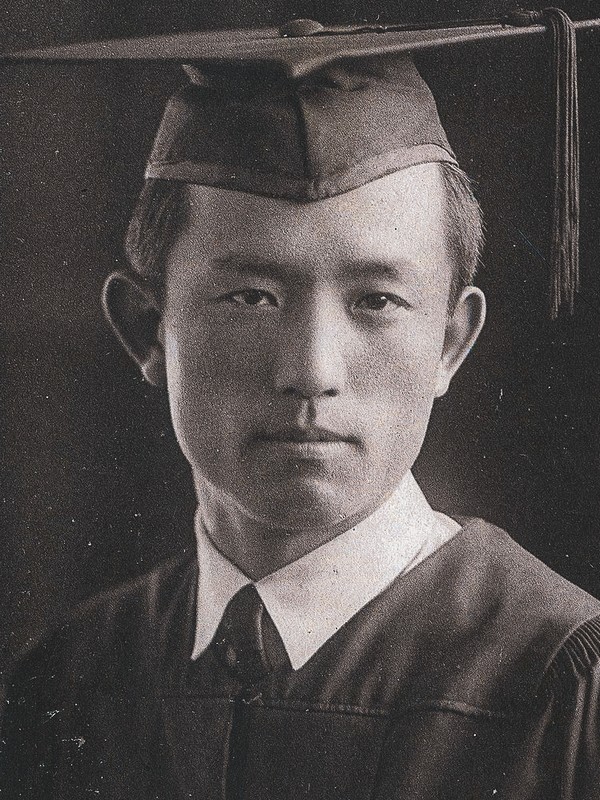
Advised by his father, he then moved to Japan to study. One wonders if his father knew what his son was writing about. It’s at this point in the museum as you go around the works, you can guess what happens if you’ve already learned about Korean history and visited places like the Seodaemun Prison History Museum.
He was arrested by Japanese police for his involvement in anti-Japanese activities and eventually imprisoned in Fukuoka. The circumstances of his death remain shrouded in mystery, with theories suggesting he may have been subjected to cruel experiments, but he ultimately died in prison.
In 1948, his handwritten manuscripts were published posthumously as “The Sky, the Wind, the Stars, and the Poem” (하늘과바람과별과시) and these works are what continue to resonate with people today, reminding us of the importance of courage, hope, and resistance in the face of adversity.
What To Know About The Museum
Housed in the Cheongun Pumping Station, the museum is an unconventional space that pays homage to Yoon’s life and work. The very essence of the place is poetic, where the pumping station’s former role in pressurizing water to make it flow powerfully aligns with how Yoon’s poetry can invigorate and awaken weary souls.
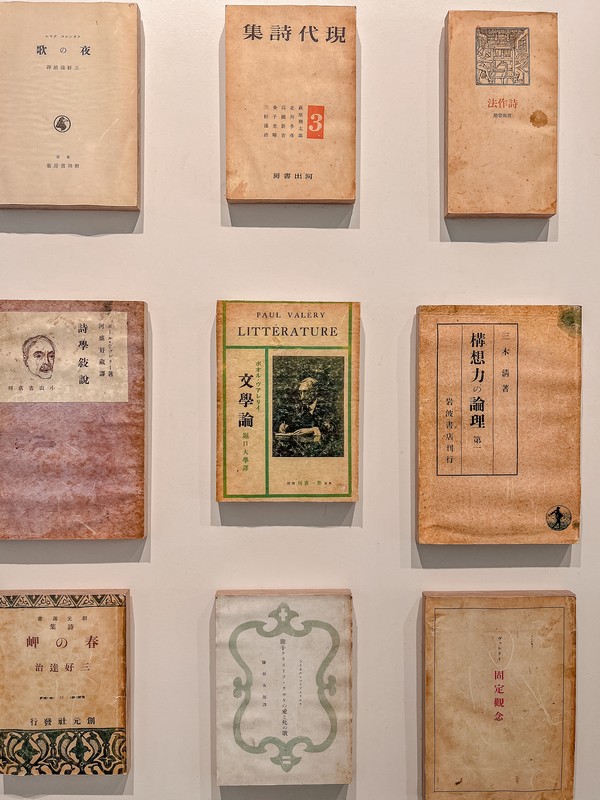

While the poet was studying literature at Yeonhee College, he lived with literary friends Jeong Byeong Uk and Kim Song in Nusang-dong, Jongno. So, when Jongno-gu had a space, the Cheongun Pumping Station, that had been abandoned and need reinvigoration, it was a natural choice to turn it into an ode to the poet.
The Yoon Dong Ju Literature Museum offers a glimpse into the life and work of a poet whose words continue to inspire and move people to this day. In fact, twice that I’ve entered I’ve found groups of people inside reciting Yoon Dong Ju’s poems together. It’s a place where you can immerse yourself in the beauty of his poems, the courage of his convictions, and the enduring legacy he left behind.
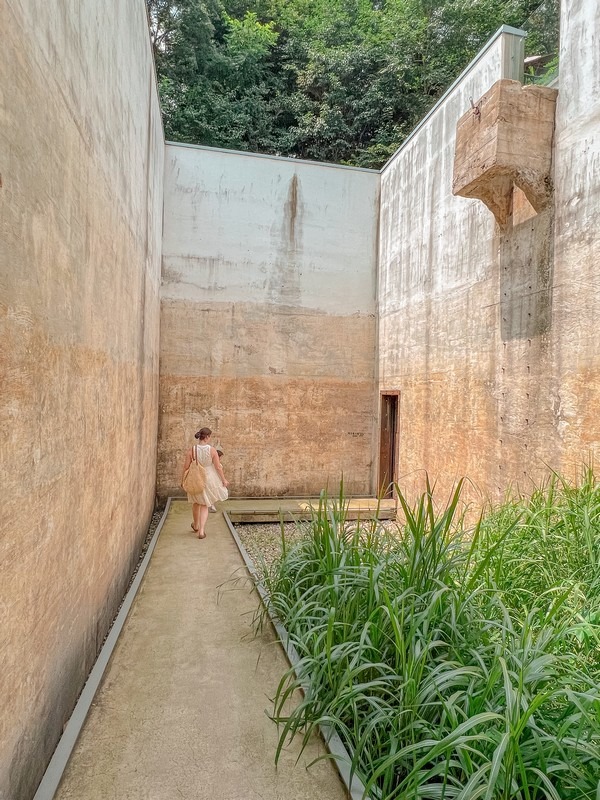
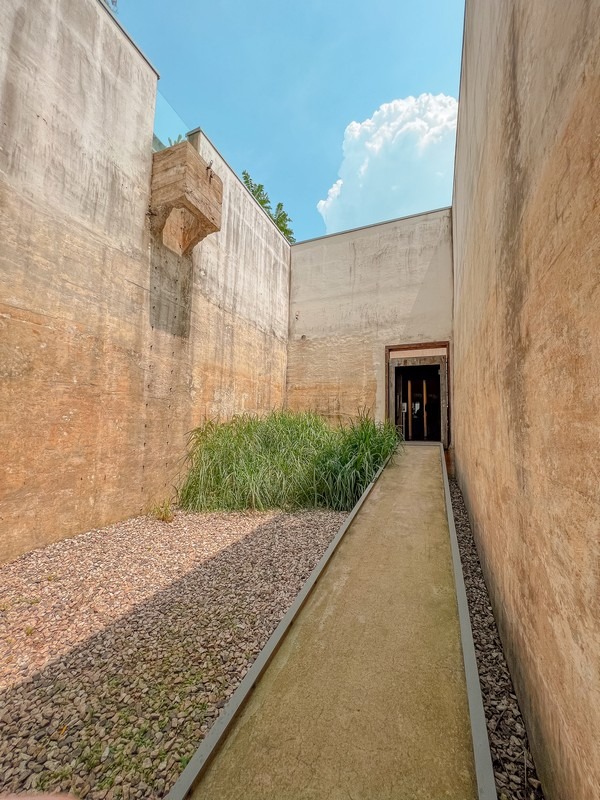
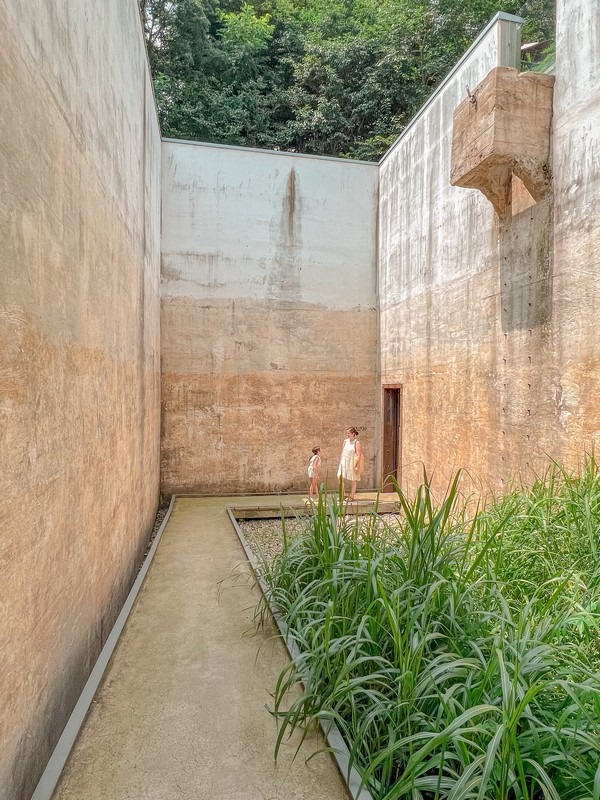
When you first step in, there is a nice museum space that displays original works and copies of Yoon Dong Ju’s works, and goes through the history of his life and death. There’s a doorway which leads to the “Opened Well” with a walkway that leads to the “Closed Well”.
The water marks from water left behind are described as “accumulated memories” and visitors are asked to breathe in this space where you can see the sky, the wind, and the earth before entering the closed space where only a single ray of light can penetrate the room which pays homage to where Yoon Dong Ju took his last breath.
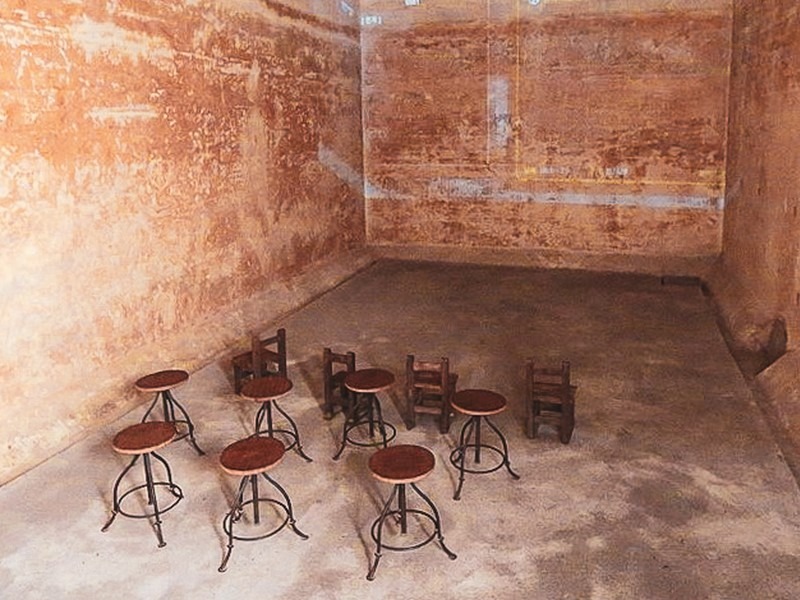
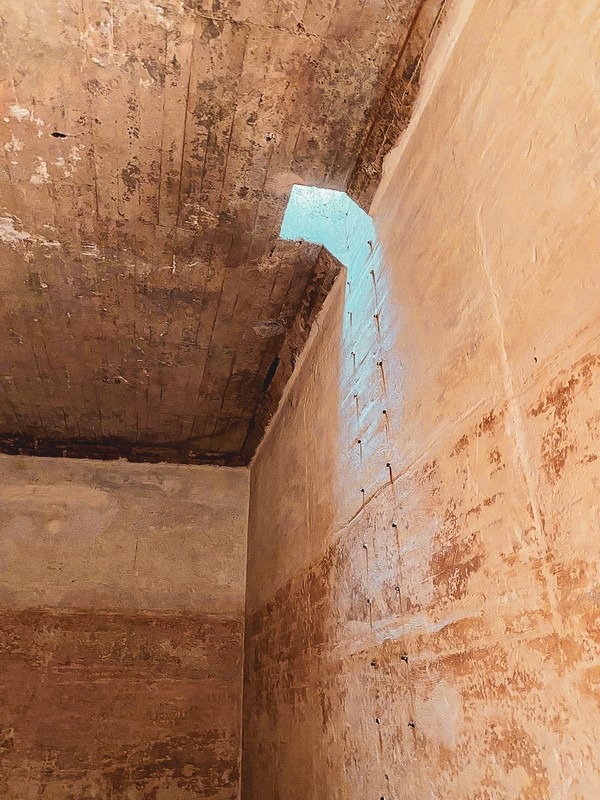
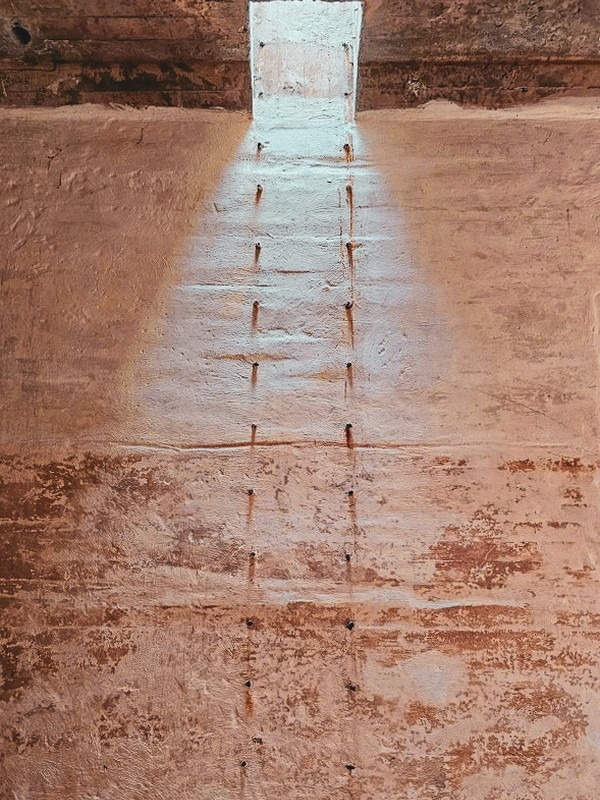
If you want to continue your literary adventure in the hills of Korea, walk up the street to find the Cheongun Literature Library. The walk is along the Literary Trail of Inwangsan Mountain and will bring you to this beautiful Hanok library, the perfect escape to read a book with the sounds of a waterfall nearby.
Visiting the Yoon Dong Ju Literature Museum is not just about exploring a poet’s life; it’s about understanding the history of Korea and their fight for independence, and the power of words to ignite change. Step into the past, immerse yourself in the poetry, and let your soul be awakened by the words of a poet who gave voice to the silent yearnings of a nation.
Did you like this post? Pin IT!
